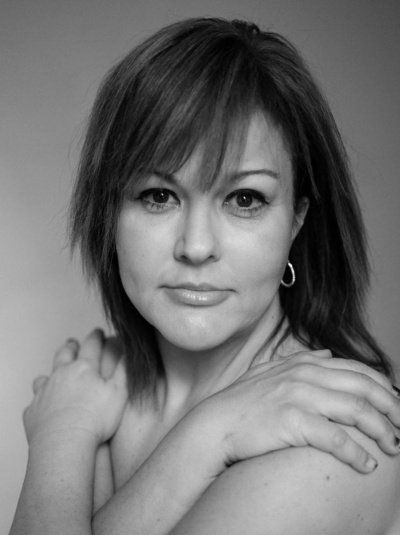Fix Relationship Issues before Bariatric Surgery

Counseling Before and After Bariatric Surgery Helps Couples Manage Change
Relationship issues after bariatric surgery are a common topic discussed during the orientation class prior to surgery. Any drastic change that takes place in one spouse affects both of the partners. In fact, bariatric surgery will impact the lifestyle of the entire family. In a prior post, the high rate of divorce after bariatric surgery was explored.
Relationship Issues after Bariatric Surgery
There are two leading causes of relationship issues after bariatric surgery.
Perhaps the relationship was poor before the bariatric surgery. The new more confident bariatric surgery partner now finds the esteem and courage to end a bad situation. Bariatric surgery can have a positive effect on a solid marriage but it can tear apart a marriage that is already on the rocks.
Sometimes the partners can no longer find a common ground where interests are shared. The partner who had bariatric surgery has been energized and is no longer attracted to a sedentary lifestyle centered around eating. Whereas the remaining partner is comfortable with the lifestyle that existed prior to the bariatric surgery.
It is this latter relationship dynamic that I wish to explore. Specifically, what can be done to resolve these sorts of relationship issues after bariatric surgery?
Resolving Relationship Issues after Bariatric Surgery
Dramatic change comes with bariatric surgery. Food shopping, mealtime, and the activities engaged in for enjoyment must shift to accommodate healthier habits if the bariatric surgery is to succeed. The loss of familiarity with “what was” calls for adjustment. And change, whether positive or negative, can be charged with emotions that promote stress. Stress will in turn grate patience, especially if the partner who did not have bariatric surgery is unenthused about the changes taking place.
Each spouse’s job in couples therapy is to focus on his or her own learning and growth, not to try to get the other person to change.
If common ground cannot be found then you have to be ready to turn the page and end that chapter of your life. In the lifespan of a relationship sometimes a couple becomes incompatible. It is better to be alone and understand the power of aloneness than to be in a dysfunctional or incompatible relationship. But let it not go unspoken that a divorce after bariatric surgery is a decision that should come after an honest effort has been made to find solutions to the problems inherent in a marriage. Why abandon a relationship that may be able to weather the winds of change?
If after bariatric surgery your relationship becomes strained then counseling might help to resolve your issues. The purpose of relationship counseling is for a therapist to assist in moving the couple from conflict to resolution.
Resolving Relationship Issues before Bariatric Surgery
We are a society that was raised on a false notion of romantic love. We think that true love means “happily ever after” and not having to work at compatibility. That’s just a fairy tale we were told as children. Perhaps, then, a deep exploration of feelings and the solidarity of the relationship should be undertaken sooner rather than later. Read, “True Love after Weight Loss.”
Resolving relationship issues after bariatric surgery may not be the ideal time to seek counseling. With the extremely high divorce rate after bariatric surgery, it makes sense to play the odds and resolve relationship issues before bariatric surgery.
Pre-marriage counseling is often done to help couples address differences prior to taking their marital vows. Likewise, relationship counseling for bariatric surgery can be undertaken. Even couples in healthy relationships can attend couples counseling to further strengthen their already strong unions. In either case, relationship counseling before bariatric surgery will prepare and strengthen the couple to better withstand the changes that will come.
What to Expect from Relationship Counseling
Relationship counseling is a type of psychotherapy and is usually practiced by licensed professionals such as a marriage and family therapist. Counseling is usually short, and both partners should participate. The benefit is that couples counseling avoids the victim or “poor me” attitude that can be a by-product of individual therapy, which encourages people to dig deeper into their own world view. Each spouse’s job in couples therapy is to focus on his or her own learning and growth, not to try to get the other person to change.
Couples therapy will involve discovering the strengths and weaknesses in a relationship, improving communication, and developing problem-solving skills. Partners work on understanding their spouse’s feelings and viewpoint, negotiating the differences that can be negotiated or accepting those differences that cannot. Sessions can be animated, argumentative, or pass in stony silence. The therapist must be able to guide all sessions regardless of the climate.
Couples need not be married to participate, and a couple can be heterosexual or homosexual. As is stated, another term for relationship counseling is couples counseling and marriage is not a prerequisite. A couple sharing a relationship will suffice.
When selecting a counselor some of the more pertinent questions might be about the counselor’s level of education, general availability, number of sessions per week, length of therapy, fees and coverage through health insurance. You may find a licensed Marriage and Family Therapist in your area through TherapistLocator.
If additional but separate problems surface then the therapist should involve other mental health counselors that specialize in those areas of need.
If the sessions lead to the discovery that the marriage is beyond repair then it could very well in the best interest of both partners to terminate the relationship. Although such decisions can be emotionally difficult, such difficulty is probably preferable to remaining in a hopeless relationship. Sometimes relationship issues only can be resolved by dissolution of the marriage.
Living larger than ever,
My Bariatric Life
Thank you, Alex. You raise and excellent point! We end this phase of our lives, true, but there is a whole sea of possibilities for the new life we can create together with our spouse. It can be an exciting time for the relationship. But the couple has to prepare themselves for it mentally and emotionally. A therapist can help the couple navigate through this. There are lots of good self help books that can help, as well.




Alex Brecher 10,516
Posted
@My Bariatric Life,
As always, great article! You have so many insights here about getting ready for a successful WLS journey. It is so tempting and common to postpone “the conversation” about what will happen after WLS. It is so easy to just hope things will fall into place; that either your weight loss surgery or new lifestyle will not change your relationship, or that your relationship will change to accommodate your new lifestyle.
It is necessary to face the possible changes head-on and in advance, as you say. I would also add one more thing, which is the possibility of looking at this in a positive light. You and your partner can look at what the relationship can gain from your weight loss surgery, and emphasize the positives rather than what you may lose. For some things, there’s no need to wait until WLS to start. For example, the couple can start to cook together, or take walks together, before you get WLS.
Thanks for the good article!
Share this comment
Link to comment
Share on other sites